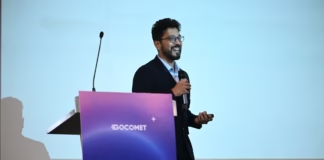Manila, 17 October 2024 – At Meridian 2024 in London, United Kingdom, the Stellar Development Foundation announced a new partnership with Mastercard to integrate the company’s Crypto Credential solution with the Stellar network, a blockchain used for global payments and digital financial services.
Mastercard Crypto Credential, which helps verify interactions among consumers and businesses using blockchain networks, will be embedded in the Stellar ecosystem as the exclusive credentialing solution to enable a range of secure, compliant use cases for crypto wallet providers including the Philippines’ very own Coins.ph, Mercado Bitcoin, and Wirex.
“As the largest exchange in the Philippines, Coins.ph is at the forefront of driving innovation in the financial landscape, making Mastercard’s Crypto Credential on Stellar a perfect fit for us. In 2023, remittances to the Philippines reached $37.2 billion, highlighting the vast potential to bring millions on-chain—many of whom will experience the benefits of crypto for the first time, starting with fast and low-cost cross-border transactions made possible through our collaboration,” said Coins.ph Chief Executive Officer Wei Zhou.
Today, the user experience of cryptocurrency transfers is still complex, which can create a barrier to adoption. With Mastercard Crypto Credential, crypto remittances can be simply initiated using the recipient’s email address. Behind the scenes, Mastercard Crypto Credential ensures the destination is valid, that it can accept the selected digital asset, and complies with regulatory requirements.
“We designed Mastercard Crypto Credential to bring more trust and innovation to the digital assets ecosystem,” said Raj Dhamodharan, executive vice president, Blockchain & Digital Assets at Mastercard. “Bringing our technology, standards and infrastructure together with Stellar’s commitment to powering commerce using blockchain technology, we are paving the way for safer, simpler, and more secure digital assets.”
Mastercard Crypto Credential confirms interactions among consumers and businesses, providing some peace-of-mind that a user has met a set of verification standards. The solution also brings more trust and certainty to the process through the exchange of metadata and supports transferring the information needed for cross-border transactions.
Stellar and Mastercard work will initially focus on enabling credentialing for remittances and peer-to-peer transfers – pairing the user-friendly experience of Mastercard Crypto Credential with the Stellar network’s fast settlement times and low fee structure. As an extension of the partnership, Mastercard and Stellar will explore how Mastercard’s wide range of services can be leveraged on the Stellar network, opening doors for additional new and innovative applications of blockchain technology.
“The Stellar network was designed to be fast, affordable and to demonstrate blockchain technology’s ability to solve real problems for people,” said Denelle Dixon, CEO of the Stellar Development Foundation. “Collaborating with Mastercard to integrate Mastercard Crypto Credential into the Stellar ecosystem will make transferring funds safer and faster, enabling a wide range of use cases and further driving adoption of blockchain technology.”
This collaboration marks a significant step forward in making cryptocurrency transactions more user-friendly and secure. The Stellar network has a large network of on-and-off-ramps that enable cash-to-crypto transactions around the globe and an ecosystem of trusted financial institutions with a variety of regulated, tokenized real-world assets.
This integration demonstrates the power of partnership to develop the future of blockchain technology. By simplifying transactions and enhancing security, the integration of Mastercard Crypto Credential into the Stellar network is helping to make blockchain technology more accessible and appealing to a broader audience, with the goal of fostering wider adoption and mainstream use.




